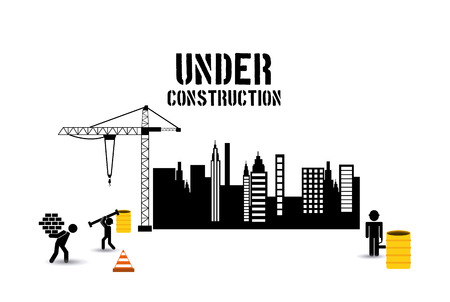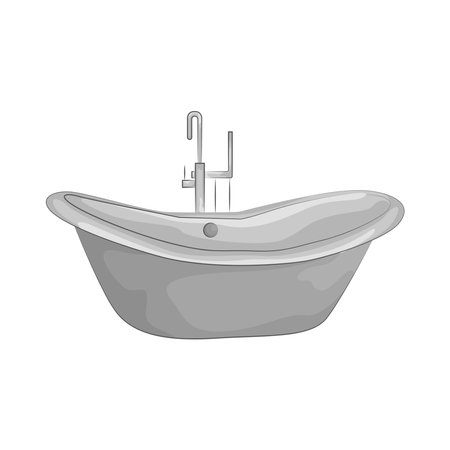The Importance of a Well-Functioning Boiler in UK Homes
In the UK, a reliable and efficient boiler is more than just a household appliance—it is an essential component for maintaining comfort and wellbeing throughout the year. British weather is famously unpredictable, with cold spells often extending from autumn through late spring. This makes the central heating system, powered by the home’s boiler, a critical feature in almost every property. A well-functioning boiler ensures not only a warm and cosy indoor environment but also provides hot water for daily needs such as bathing, cooking, and cleaning. With energy costs continually on the rise, homeowners increasingly recognise that an efficient boiler is key to managing utility bills while safeguarding their family’s comfort. Consequently, understanding the significance of boilers and their impact on everyday life has become a priority for UK residents, reinforcing the need for regular maintenance and prompt repair of any plumbing issues related to these vital systems.
2. Common Boiler-Related Plumbing Issues Faced by UK Residents
Across the UK, homeowners frequently encounter a range of boiler-related plumbing problems that can disrupt daily comfort and efficiency. Recognising these common issues is crucial for timely intervention and cost-effective maintenance. Below, we outline the most prevalent problems faced by UK residents:
Low Boiler Pressure
Low pressure is a widespread concern, especially during colder months when heating demand increases. This issue may result in radiators not warming up properly or the boiler shutting down entirely. Typical causes include water leaks, bleeding radiators, or faulty pressure relief valves.
Kettling
Kettling refers to the strange banging or whistling noises boilers sometimes emit, reminiscent of a boiling kettle. This phenomenon is often due to limescale build-up on the heat exchanger, particularly in hard water areas like London and the South East. Kettling can significantly reduce boiler efficiency and lifespan if left unchecked.
Leaks and Drips
Leaks are not only inconvenient but can also lead to structural damage if ignored. Common sources include corroded pipes, loose joints, or failing internal components within the boiler itself. Regular inspections are vital to prevent minor drips from escalating into costly repairs.
Radiator Issues
Problems with radiators—such as cold spots, uneven heating, or complete failure to warm up—are another frequent complaint among UK property owners. These issues usually stem from trapped air, sludge build-up, or malfunctioning valves.
Overview of Common Problems and Causes
| Problem | Likely Cause |
|---|---|
| Low Pressure | Leaks, radiator bleeding, faulty valve |
| Kettling | Limescale build-up on heat exchanger |
| Leaks/Drips | Corrosion, loose joints, worn seals |
| Radiator Issues | Airlocks, sludge accumulation, stuck valves |
Summary: Why Prompt Action Matters
Tackling these common boiler-related plumbing problems promptly not only restores comfort but also safeguards your investment by preventing more severe and expensive failures in the future. Understanding these issues empowers UK residents to make informed decisions about maintenance and repair strategies.

3. Warning Signs and Early Detection
Recognising the early warning signs of boiler-related plumbing issues is crucial for homeowners across the UK. Being proactive not only helps maintain comfort during colder months but also protects your investment in your property’s heating system. One of the most common indicators of trouble is unusual noises emanating from the boiler or pipes, such as banging, whistling, or gurgling sounds. These often signal trapped air, limescale build-up, or imminent mechanical failure—all of which require prompt attention.
Another frequent symptom is inconsistent heating performance. If you notice that radiators aren’t warming up evenly or that hot water supply fluctuates without explanation, it could point towards problems with the boiler’s internal components or issues within the plumbing network itself. In some cases, the controls may become unresponsive, leaving you unable to adjust temperature settings or turn the system on and off as needed—a clear sign that professional intervention may be necessary.
Early detection and intervention can save considerable time and expense down the line. Left unchecked, minor faults can escalate into major breakdowns, resulting in costly repairs and potential safety hazards. By staying alert to these tell-tale signs and addressing them promptly, UK homeowners can ensure their boilers remain efficient and reliable throughout the year.
4. DIY Troubleshooting Tips for Homeowners
Before reaching for the phone to call a professional, there are several safe and simple checks British homeowners can carry out themselves when facing boiler-related plumbing problems. By following these practical steps, you might resolve minor issues and save both time and money. However, always remember: if in doubt or if you suspect a gas leak, contact a Gas Safe registered engineer immediately.
Common Issues & What You Can Do
| Problem | DIY Check | When to Call a Pro |
|---|---|---|
| No heating or hot water | Check thermostat settings, timer, and power supply. Ensure the boiler pressure is between 1-2 bar. | If pressure drops frequently or there are visible leaks. |
| Cold radiators | Bleed radiators using a radiator key—release trapped air until water flows steadily. | If radiators remain cold after bleeding or only heat at the bottom. |
| Boiler not firing up | Reset the boiler using the manufacturer’s instructions (usually a reset button). | If the issue persists after resetting or frequent resets are needed. |
| Strange noises (banging, whistling) | Check for low pressure and bleed radiators; ensure water supply is on. | If noises continue or worsen after basic checks. |
| Pilot light gone out (older models) | Follow the manual to relight. Ensure there’s no smell of gas before attempting. | If pilot won’t stay lit or you smell gas—call an engineer immediately. |
Essential Safety Reminders
- Never attempt to open the boiler casing or tamper with internal components.
- If your boiler displays fault codes: Refer to the user manual for guidance before calling an engineer.
- If you detect any signs of carbon monoxide (CO) – such as sooty marks, yellow flames, or feeling unwell – evacuate immediately and call emergency services.
Simple Steps You Can Take Today
- Check Boiler Pressure: Look at the pressure gauge—if it’s below 1 bar, top up via the filling loop as per your manual.
- Bleed Radiators: Use a radiator key, turning anti-clockwise until air escapes and water appears.
- Thermostat & Timer Settings: Double-check that settings haven’t changed due to power cuts or daylight savings adjustments.
- Power Supply: Ensure switches and fuses related to your boiler are turned on.
The Bottom Line for UK Homeowners
Tackling these straightforward troubleshooting tips can help many British households maintain warmth and comfort through chilly months. However, always prioritise safety—when in doubt, trust a certified local expert to protect your home and investment.
5. When to Call a Gas Safe Registered Engineer
In the UK, the legal and safety requirements for boiler and gas-related repairs are extremely stringent. It is not just best practice—it is a legal obligation to ensure that any work involving gas appliances, including boilers, is carried out by a Gas Safe registered engineer. Attempting DIY repairs or hiring unregistered tradespeople puts both your property and its occupants at significant risk.
Understanding the Legal Framework
The Gas Safety (Installation and Use) Regulations 1998 mandate that only engineers listed on the official Gas Safe Register can legally work on gas appliances. This regulation protects homeowners, tenants, and businesses alike, ensuring all installations and repairs meet rigorous safety standards.
Why Certification Matters
Gas Safe registered engineers undergo extensive training and regular assessments to keep up with changing regulations and technologies. Hiring a certified professional guarantees competence, compliance, and peace of mind. It also ensures your home insurance remains valid, as many policies require proof of proper certification for gas-related works.
Signs You Need a Professional
If you notice persistent boiler faults, leaking pipes near your heating system, unusual noises, or suspect a gas leak (such as smelling gas), do not attempt to investigate or fix the problem yourself. Contact a Gas Safe registered engineer immediately. Additionally, annual servicing and landlord safety checks must always be conducted by certified professionals.
Protecting Your Investment
Engaging a Gas Safe engineer is more than meeting legal obligations—its about safeguarding your home’s value and the wellbeing of everyone inside it. In summary, never cut corners when it comes to boiler-related plumbing issues in the UK; always verify credentials via the official Gas Safe Register before permitting any work to proceed.
6. Cost Considerations and Insurance Insights
When facing boiler-related plumbing issues in the UK, understanding the financial implications is crucial for homeowners and landlords alike. Typical repair costs can vary widely depending on the nature and severity of the problem; minor fixes such as replacing a valve or thermostat might start from £70-£150, while more complex repairs involving heat exchangers or circuit boards could easily exceed £400. It’s worth noting that emergency call-outs during evenings or weekends often carry premium rates, so factoring this into your budgeting is wise.
The Value of Boiler Cover and Home Emergency Insurance
Given the unpredictable British weather and the essential role boilers play in daily life, many households opt for boiler cover or comprehensive home emergency insurance. These policies usually provide 24/7 access to qualified engineers, annual servicing, and protection against unexpected breakdowns. While monthly premiums typically range from £10 to £30, investing in such cover can save substantial sums in the event of major faults, reducing both financial stress and disruption to your routine.
Budgeting Tips for Unexpected Repairs
To stay financially prepared, it’s prudent to set aside a contingency fund specifically for home maintenance and emergencies. Assess your boiler’s age and service history—older models may warrant a larger reserve due to increased risk of failure. Regular servicing not only prolongs your system’s lifespan but also helps identify potential issues before they escalate into costly repairs. Additionally, review your insurance policy annually to ensure it remains competitive and meets your needs, especially if you have upgraded or replaced your boiler recently.
Smart Investment Perspective
From a market trends viewpoint, proactive spending on preventative maintenance and appropriate insurance is increasingly recognised as a sound investment in property value and household resilience. In the long run, balancing upfront costs with risk mitigation strategies helps UK homeowners avoid budget shocks while maintaining a warm, efficient home throughout the year.
7. Future-Proofing Your Plumbing and Boiler System
As the UK continues to modernise its approach to home energy efficiency, future-proofing your plumbing and boiler system has become more important than ever. Regular, proactive maintenance is the cornerstone of long-term reliability. Scheduling annual boiler servicing with a Gas Safe registered engineer not only keeps your system running smoothly but also ensures compliance with warranty requirements and reduces the risk of costly emergency repairs.
Staying Ahead of Regulatory Changes
Recent updates in UK regulations, such as the phasing out of non-condensing boilers and tighter efficiency standards under Part L of Building Regulations, mean that older systems may soon become obsolete or more expensive to maintain. Homeowners should stay informed about local council initiatives and government incentives—like the Boiler Upgrade Scheme—which can help subsidise the cost of upgrading to greener technologies.
Smart Investments for Energy Efficiency
Investing in a modern, energy-efficient boiler—such as a condensing combi or system boiler—not only aligns with current and upcoming regulations but also offers tangible savings on your energy bills. These systems are designed to extract more heat from less fuel, reducing both your carbon footprint and ongoing operating costs. For many households, especially those with aging boilers over 10 years old or frequent repair needs, the financial and environmental benefits of upgrading now far outweigh the short-term expense.
Long-Term Maintenance Strategies
To maximise the lifespan of your investment, implement a maintenance schedule that includes regular bleeding of radiators, checking for leaks, monitoring water pressure, and ensuring pipe insulation is intact—especially before winter sets in. Consider installing smart controls or thermostatic radiator valves for greater control over heating zones and enhanced efficiency.
Ultimately, future-proofing your plumbing and boiler isn’t just about keeping up with regulations; it’s about safeguarding your property value, reducing household costs, and contributing to the UK’s broader sustainability targets. By taking a forward-thinking approach today, you’ll be well-positioned to enjoy reliable comfort and peace of mind for years to come.


